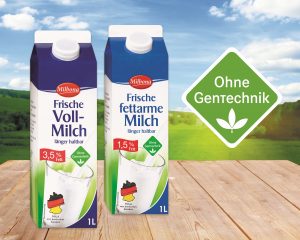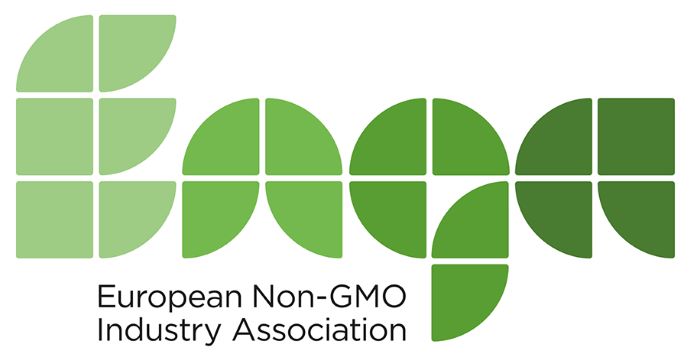
Heike Moldenhauer, secretary general of the European Non-GMO Industry Association
A new organization, the European Non-GMO Industry Association (ENGA), was recently launched to support and advocate for the interests of companies producing non-GMO food and feed products in Europe.
ENGA’s two primary missions are to develop a uniform EU-wide standard for non-GMO food production and advocate against deregulation of new GMO technologies such as gene editing, according to Heike Moldenhauer, ENGA’s secretary general.
“The idea came up that it would be beneficial to have an EU association for the non-GMO industry,” she says. “We don’t have a (EU-wide) national perspective on non-GMO with 10 EU countries having 10 different definitions of what non-GMO means.”
Need for EU-wide non-GMO standard
Eight EU countries—Austria, Germany, Hungary, France, Italy, Slovenia, Poland, and Czech Republic—and two non-EU countries—Switzerland and Bosnia/Herzegovina—have national non-GMO labeling laws.
The laws allow food producers to label meat, dairy, and egg products as being made with non-GMO feed. Many European manufacturers of those products prefer to use non-GMO feed to meet consumer demand.

60% of milk products in Germany are non-GMO and feature the Ohne Gentechnik (produced without genetic engineering) logo
There is no need to label other food products in the EU as non-GMO because food companies there don’t use GMO ingredients in their products, which would be subject to the EU’s GMO labeling laws.
By contrast to the Non-GMO Project, which is a private industry-driven non-GMO certification program, the EU non-GMO labeling programs were established by the governments of individual European countries.
But now with the 10 different non-GMO labeling laws, confusion can result, which is leading to the need for an EU-wide standard.
“The national perspective is really outdated and complicated because we have different definitions for what non-GMO means and that makes life very complicated for market operators who want to export and import within EU countries,” Moldenhauer says.
ENGA wants to establish a uniform EU framework and definition for non-GMO along with common certification standards for food producers.
Establishing such a standard requires enacting legislation through the European Commission (EC), the executive branch of the European Union.
“We need EU laws to secure our non-GMO business in the long-term,” Moldenhauer says. “We have eight national laws and to overcome the laws we need the commission (to enact legislation).”
Strong EU non-GMO market
Moldenhauer says the EC isn’t aware there is a large non-GMO food sector in the EU. There are no figures for the size of the EU non-GMO market but it must be large based on figures from Austria and Germany. Austria’s non-GMO market is worth 1.5 billion Euros ($1.82 billion) and Germany’s is worth 10 billion Euros ($12.1 billion). An estimated 60% of all milk and poultry and 70% of all eggs in Germany are non-GMO.
“This is a good illustration of how important the non-GMO market is,” Moldenhauer says.
Jochen Koester, president of AgroTrace, a Switzerland-based commodity brokerage firm, says the EU non-GMO market has strength that the EC needs to recognize.
“There is a lot of economic power that was never translated into political power. The commission must understand that the economic power is not the (GMO) plant breeders but the non-GMO sector.”
The main drivers of the EU non-GMO market are the food retailers.
“They are in direct contact with consumers and know that non-GMO products sell. They also have developed their own brands with a non-GMO label,” Moldenhauer says.
Advocating against new GMOs
ENGA’s other mission is advocating against deregulation of new genetic engineering technologies such as gene editing, which pose a threat to the non-GMO industry.
Europeans have traditionally been opposed to genetic engineering of crops and foods. Only two EU countries, Spain and Portugal, grow GM crops, and those are grown on a small scale. But Moldenhauer says the European Commission is known to favor GMO technology.
The biotechnology industry is lobbying heavily that the new GMO technologies should not be regulated as the “old” GMOs are under EU law. This is the position of the United States, which is not regulating gene edited products at all.
According to Moldenhauer, supporters of the new technologies are saying: “This is a new round with new GMOs and now we want to abolish the precautionary principle and have no risk assessment, no labeling, and no traceability.”
At the end of April, the EC will release a study on the new GMO technologies along with a proposal on regulating them. Moldenhauer thinks the EC may take a balanced stand supporting some deregulation while considering the GMO opposition of European consumers.
The stakes are high for Europe’s non-GMO industry. “For the non-GMO sector, it is essential to keep the current EU GMO regulation, because we depend on knowing what is a GMO and what is not,” Moldenhauer says. “Our label only works if we can exclude GMOs.”
Encouraging non-GMO food producers to join
ENGA’s office is located in Brussels where it can better influence EU government decision-making. “To be involved in EU legislation, we have to be in Brussels,” Moldenhauer says.
ENGA’s founding members include VLOG, the German Association of Foods without Genetic Engineering; ARGE Gentechnik-frei, the Austrian Platform for GMO-free Food Production; and Danube Soya, an association that aims to increase production of non-GMO soy in Europe.
Moldenhauer encourages non-GMO food producers throughout Europe to join ENGA.
“We will make our association known and invite companies to join us. I hope that companies in different countries are interested in a platform to meet like-minded companies for cooperation.”









